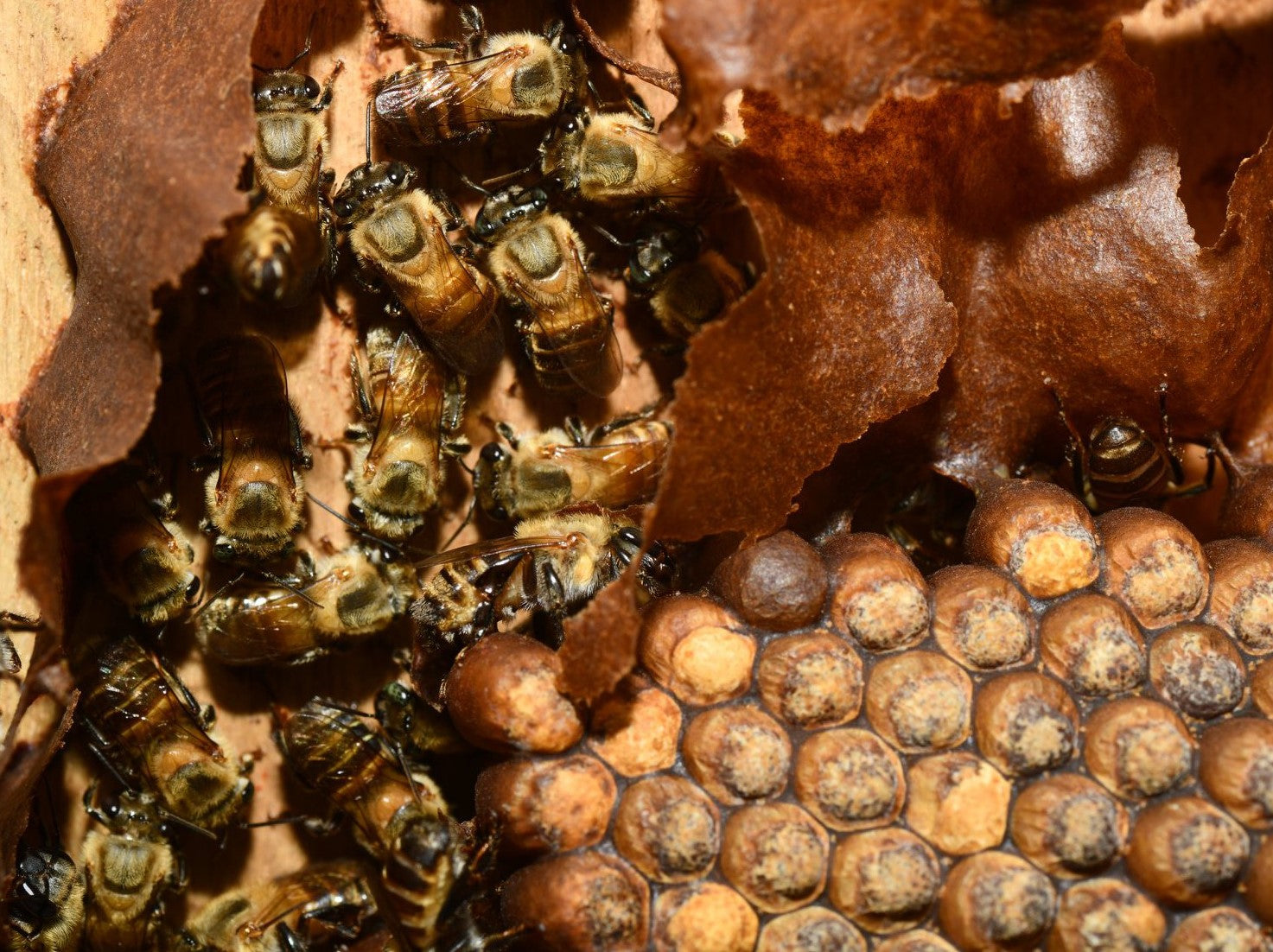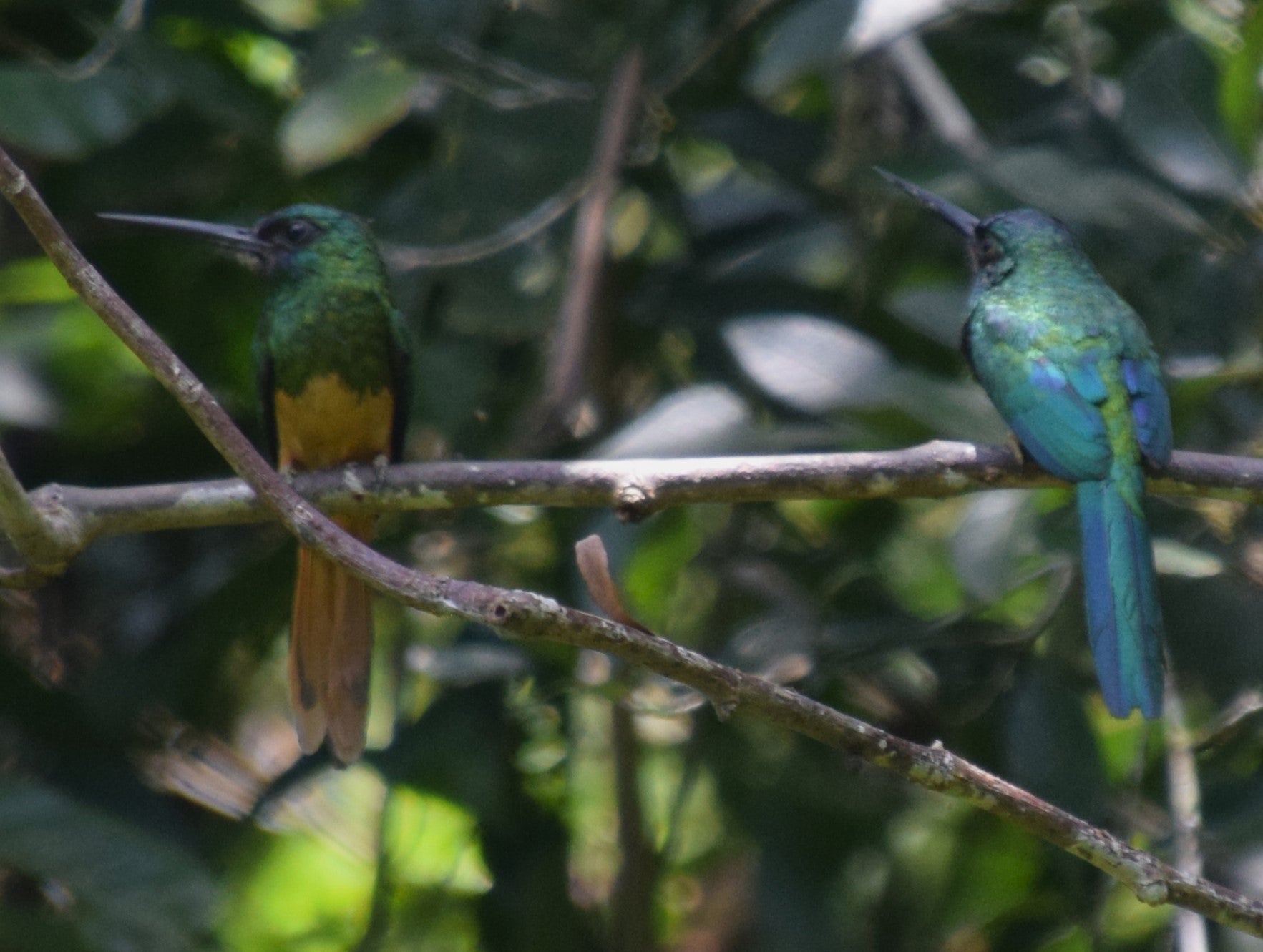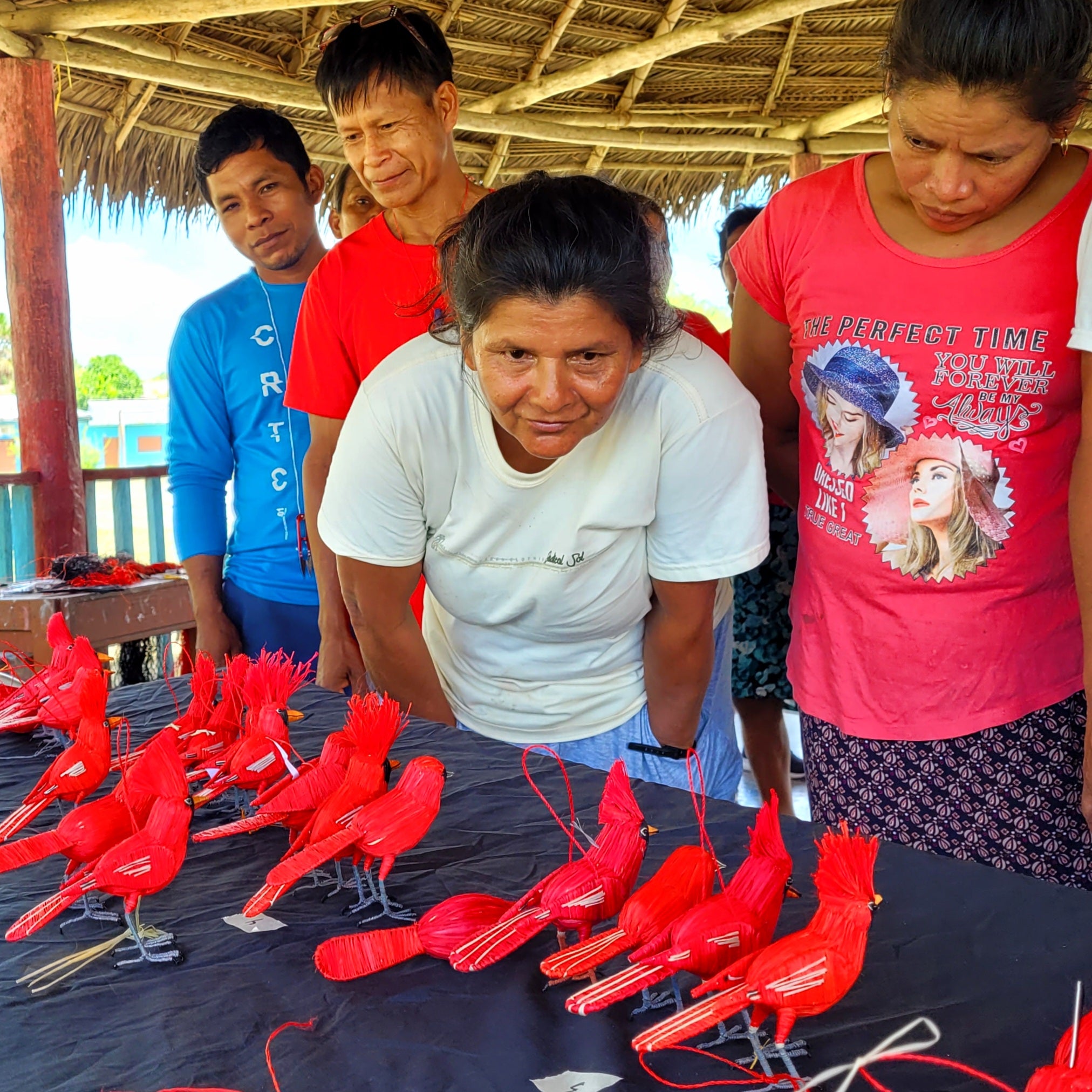by Campbell Plowden
October 22, 2022
After visiting several Maijuna native communities in the Napo River region in 2009, we did a few surveys of copal resin and have worked with some Maijuna artisans to help them develop some new handicrafts. We are now happy to be able to sell jars of stingless bee honey made by Maijuna bee keepers in collaboration with our NGO partner OnePlanet at our Artesanías Garza Viva store in Iquitos (136 Jr. Nauta – near Dawn on the Amazon on the Boulevard.).


Most people are familiar with the honey produced by the European honey bee; fewer people are aware, however, that tropical forests have a wide diversity of stingless bees which pay a major role in pollinating many rainforest plants. Many of them make their nests in or under hollow trees. The size of their hives and their production of honey is less than their stinging relatives, but their honey is renowned for its potent medicinal properties. Its flavor varies from sweet to sour to pungent depending on the species of bee and the particular flowers and resin sources it was gathering.

OnePlanet began training people in several Maijuna communities more than five years ago to capture an intact nest from a tree and then safely install it in a nest box near their village. As the number of bees in one nest grows, part of that hive with a queen can be transferred to a new nest. This process helps grow the overall population of these ecologically important insects because traditional harvest methods often involve just hacking out the nest or cutting down a tree with a nest in it.

The Maijuna native bee keepers have now become experts in managing the hives and collecting the honey in a clean way. The OnePlanet brand of Maijuna honey has now received a sanitary certificate from the Peruvian government to ensure its purity and cleanliness. This makes it a much healthier and safer product than the honey sold in public markets which provide no such assurances.


For more information about this project, visit: www.OnePlanet-NGO.org. Project photos were published in the OnePlanet page on Facebook.




